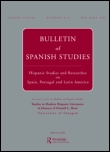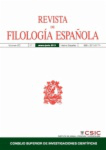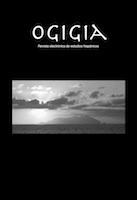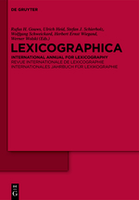
BOLETIN DE LA REAL ACADEMIA ESPANOLA
Scope & Guideline
Advancing the Frontiers of Linguistic Scholarship
Introduction
Aims and Scopes
- Historical Linguistics and Lexicography:
The journal frequently publishes studies that explore the evolution of the Spanish language, its lexicon, and the influence of historical documents on contemporary linguistic norms. - Literary Analysis and Criticism:
A significant portion of the journal's articles engage in literary analysis, offering critical insights into the works of classic and contemporary authors, particularly from the Spanish Golden Age. - Cultural Studies:
The journal covers broader cultural themes, including the interplay between literature and social issues, reflecting on how historical contexts shape literary production. - Interdisciplinary Approaches:
Many publications adopt interdisciplinary methodologies, combining insights from linguistics, history, and literature to provide a more nuanced understanding of Spanish and Portuguese texts. - Documentation and Archival Studies:
The journal often features articles that present new findings from archival research, contributing to the preservation and understanding of historical literary and linguistic artifacts.
Trending and Emerging
- Contemporary Linguistic Innovations:
Recent articles are increasingly focused on the impact of globalization and technology on language use, indicating a shift towards understanding modern linguistic phenomena. - Intertextuality and Adaptation:
There is a growing trend in exploring intertextual connections and adaptations in literature, reflecting a broader interest in how texts interact and influence one another across time. - Cultural Identity and Language:
Emerging studies are examining the relationship between language and cultural identity, particularly in the context of migration and diaspora, showcasing the journal's engagement with current sociocultural issues. - Digital Humanities:
The exploration of digital methodologies in literary and linguistic studies is gaining traction, indicating an embrace of new technologies and their implications for research and scholarship.
Declining or Waning
- Medieval Literature Studies:
There has been a noticeable decrease in publications focusing on medieval literature, suggesting a shift towards more modern texts and contexts, possibly as researchers prioritize contemporary relevance. - Traditional Rhetoric and Poetics:
Discussions centered on classical rhetoric and poetics have waned, indicating a potential move away from traditional frameworks in favor of more innovative literary theories. - Historical Textual Transmission:
Research that specifically addresses the transmission of texts through historical periods has become less frequent, possibly overshadowed by more pressing contemporary linguistic and literary concerns.
Similar Journals

Bulletin of Spanish Studies
Connecting Scholars through Spanish Literary ExplorationBulletin of Spanish Studies is a prominent academic journal dedicated to the exploration and discourse of Spanish studies within the diverse realms of Cultural Studies and Literature and Literary Theory. Published by Routledge Journals, Taylor & Francis Ltd, this journal serves as a crucial platform for scholars, researchers, and students to disseminate their findings and engage in scholarly debates related to Spanish literature, culture, and linguistics. With an emphasis on high-quality, peer-reviewed research, the journal holds a reputable Q3 ranking in Cultural Studies and a commendable Q2 ranking in Literature and Literary Theory, reflecting its significant impact within the academic community. The Bulletin is indexed in notable databases, achieving a rank of #314 out of 1106 in Literature and Literary Theory and #738 out of 1304 in Cultural Studies, signaling its vital role in advancing knowledge in these fields. Although it does not currently offer open access options, the journal remains an essential resource for those passionate about the study of Spanish culture and literature from 2010 to 2024 and beyond.

REVISTA DE FILOLOGIA ESPANOLA
Connecting Scholars Through Open Access ResearchREVISTA DE FILOLOGIA ESPANOLA is a distinguished academic journal dedicated to the fields of linguistics and literature, published by the CONSEJO SUPERIOR INVESTIGACIONES CIENTIFICAS (CSIC) since 1954, and has been an Open Access journal since its inception. Situated in Madrid, Spain, this journal has emerged as a crucial platform for the dissemination of scholarly research, with notable rankings including Q2 in Linguistics and Language and Q1 in Literature and Literary Theory as of 2023. The journal's commitment to fostering academic dialogue is reflected in its impressive Scopus rankings, including a 79th percentile in the Arts and Humanities for Literature and Literary Theory. Covering a wide range of topics from linguistic theory to literary critique, REVISTA DE FILOLOGIA ESPANOLA is essential reading for researchers, professionals, and students alike, providing valuable insights and cutting-edge research in the ever-evolving landscape of Spanish philology.

Ogigia-Revista Electronica de Estudios Hispanicos
Advancing Knowledge in Hispanic StudiesOgigia-Revista Electronica de Estudios Hispanicos is a distinguished academic journal published by EDICIONES UNIV VALLADOLID in Spain, focusing on the rich field of Hispanic studies including literature, linguistics, and education. Since it became an Open Access journal in 2013, it has provided a platform for scholars and practitioners to disseminate their research widely, fostering critical engagement and dialogue within the global academic community. As of 2023, the journal holds various category quartiles, reflecting its impact in relevant disciplines—ranked in Q4 in Education, Q3 in Linguistics and Language, and Q2 in Literature and Literary Theory. In the Scopus metrics, it occupies the 54th percentile in Literature and Literary Theory, underscoring its significant contribution to the field. Its core objective is to explore themes pertinent to Hispanic culture and language, providing an essential resource for researchers, educators, and students engaged with the intricacies of Spanish studies.

E-Scrita-Revista do Curso de Letras da UNIABEU
Fostering Academic Dialogue in Linguistics and LiteratureE-Scrita - Revista do Curso de Letras da UNIABEU is a distinguished open-access journal dedicated to the field of Linguistics and Literature, published by CENTRO UNIV UNIABEU. Since its inception in 2010, this journal has provided a platform for the dissemination of innovative research and scholarly articles, particularly focusing on the Portuguese language and literature. With its location in Nilópolis, Rio de Janeiro, Brazil, E-Scrita serves as a vital resource for researchers, professionals, and students eager to engage with contemporary issues and advances in the study of linguistics, literary theory, and cultural studies. The journal is committed to promoting academic dialogue and fostering a deeper understanding of literary practices and linguistic phenomena, making it an essential reading for anyone involved in the humanities.

LEXICOGRAPHICA
Pioneering Insights in Linguistics and LexicographyLEXICOGRAPHICA, published by WALTER DE GRUYTER GMBH, stands as an invaluable resource in the field of linguistics and language studies. With an ISSN of 0175-6206 and an E-ISSN of 1865-9403, this esteemed journal has garnered a solid reputation, reflected in its position within the Q2 quartile for linguistics and language as of 2023. Hailing from Germany, and with a robust publication history spanning from 1996 to 2023, LEXICOGRAPHICA offers a platform for scholarly discourse and innovative research concerning lexicography and its intersections with other linguistic fields. Ranked #442 in Arts and Humanities and #516 in Social Sciences by Scopus, it occupies a pivotal space in academic literature, making it essential reading for researchers, professionals, and students committed to advancing their understanding of language documentation and analysis. Although not open access, the journal’s commitment to high-quality peer-reviewed content ensures that it remains a respected outlet for original research, critical evaluations, and discussions that shape the future of lexicographic studies.

Philologica Canariensia
Advancing interdisciplinary dialogue in literature and linguistics.Philologica Canariensia is a distinguished academic journal published by the University of Las Palmas de Gran Canaria, focusing on the vibrant fields of Literature and Literary Theory as well as Linguistics and Language. With an impact factor that positions it in the Q1 and Q2 quartiles in its respective categories as of 2023, the journal has established itself as an important platform for scholarly communication and research. Since transitioning to Open Access in 2014, it has broadened its reach, allowing researchers, professionals, and students from around the globe to access high-quality publications without barriers. With a commendable presence in Scopus rankings, including a rank of #309 out of 1106 in Literature and Literary Theory, Philologica Canariensia aims to foster an interdisciplinary dialogue and advance knowledge in the humanities. The journal's commitment to publishing innovative research makes it an essential resource for anyone engaged in exploring linguistic and literary phenomena.

Listy Filologicke
Connecting Disciplines: Where History Meets Linguistics and Literature.Listy Filologicke is a distinguished academic journal published by the Institute of Classical Studies at the Academy of Sciences of the Czech Republic, focusing on the interdisciplinary fields of History, Linguistics and Language, and Literature and Literary Theory. With an ISSN of 0024-4457 and an E-ISSN of 2570-9410, this journal has been a pivotal platform for scholarly discourse since its convergence years began in 2003. Notably, it holds a Q3 classification in History and Linguistics and Language, and a Q2 in Literature and Literary Theory as of 2023. Its rankings within Scopus illustrate its relevance and impact in academia, with noteworthy positions in the Arts and Humanities and Social Sciences categories. Researchers, professionals, and students will find Listy Filologicke an invaluable resource for exploring cutting-edge research, critical analyses, and discourse that contribute significantly to their respective fields. Based in the heart of the Czech Republic, it continues to promote scholarly excellence and foster international collaboration.

RILCE-Revista de Filologia Hispanica
Connecting Scholars to the Heart of Hispanic LiteratureRILCE-Revista de Filologia Hispanica is a distinguished academic journal published by the Universidad de Navarra, serving as a pivotal platform for scholarship in the field of Hispanic Philology. Established in 2008 and ongoing through 2024, RILCE stands out in the academic community with a robust reputation reflected in its 2023 ranking; it holds Q2 status in Linguistics and Language and Q1 in Literature and Literary Theory. The journal is indexed in Scopus, where it ranks 165th out of 1106 in Literature and Literary Theory, showcasing its significant impact with an 84th percentile ranking. Located in Pamplona, Spain, RILCE aims to foster critical dialogues and disseminate innovative research that advances the understanding of linguistic and literary studies, making it an essential resource for researchers, professionals, and students alike. Although specific open access options may be limited, RILCE remains committed to enriching the academic dialogue within its disciplines.

Studia Aurea-Revista de Literatura Espanola y Teoria Literaria del Renacimiento y Siglo de Oro
Unlocking the Secrets of Spain's Literary HeritageStudia Aurea-Revista de Literatura Espanola y Teoria Literaria del Renacimiento y Siglo de Oro, published by the esteemed Universitat Autònoma de Barcelona, stands as a pivotal academic resource in the fields of Literature and History, specializing in Spanish literature from the Renaissance and the Golden Age. With its Open Access model established since 2007, this journal ensures that groundbreaking research is readily available to scholars and enthusiasts worldwide. Notably recognized for its quality, in 2023 it achieved Q1 rankings in both History and Literature and Literary Theory, reflecting its significant contribution to advancing knowledge in these domains. The journal's Scopus rankings further underscore its impact, placing it in the top 20% for literature and the top 37% for history. As it converges from 2018 to 2023, Studia Aurea continues to facilitate critical discussions, innovative research, and the exploration of literary theories, making it an essential platform for researchers, professionals, and students alike.

Perinola-Revista de Investigacion Quevediana
Exploring the Depths of Literary Theory and CritiquePerinola-Revista de Investigacion Quevediana is a prestigious academic journal dedicated to the exploration and analysis of literature and literary theory. Published by the Universidad de Navarra, Servicio Publicaciones, this journal operates within a vibrant scholarly environment in Spain, fostering critical dialogue and innovative research in the field. With its Q1 ranking in Literature and Literary Theory as of 2023 and a solid position in the Scopus rankings (Rank #410 out of 1106, 62nd percentile), Perinola consistently disseminates high-quality research that engages both seasoned scholars and emerging voices in the discipline. The journal's scope encompasses a variety of literary themes, making it an essential resource for those invested in the nuances of literary study. As an open-access publication, it ensures that groundbreaking scholarship is accessible to a global audience, reinforcing its mission to contribute significantly to the academic community from 2011 through 2024 and beyond.